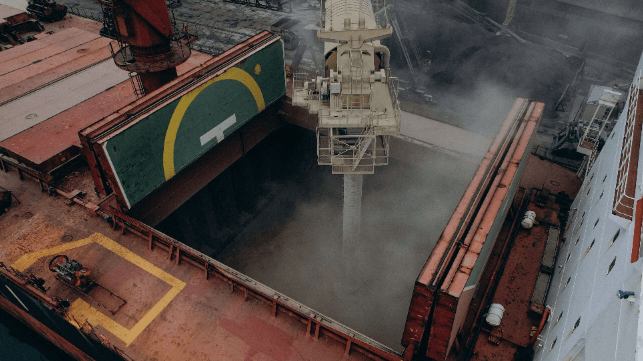New Insurance Cover Launched for Ukraine's Black Sea Grain Corridor

The London-based marine insurance broker Miller has unveiled a new insurance coverage offering for Ukrainian grain exports in the Black Sea. After Russia quit the Black Sea grain deal in July, Ukraine established a temporary shipping route to resume grain shipments in its Black Sea ports of Odesa, Chornomorsk and Pivdennyi.
In the past month, over five cargo ships have transited the corridor successfully despite the threat of attack from Russia. Three more vessels this week have also entered Ukraine's Black Sea ports using the corridor.
Miller said its new Black Sea insurance cover is offered in conjunction with Ukrainian authorities. The firm has also teamed up with maritime technology company Clearwater Dynamics to offer advanced vessel tracking technology and a 24/7 operations room monitoring of the grain corridor. This will give another layer of security to insurers and underwriters with live oversight of all vessels using the corridor.
“Insurance has a critical role in enabling shipping of Ukrainian grain and we are proud to have been able to play a role in providing an industry-wide solution. We look forward to helping Ukraine resume the vital shipping of its grain,” said Nick Summers, head of marine at Miller.
Since the temporary shipping corridor launched, Ukraine has been negotiating with global marine insurers to offer coverage for grain ships using the route. Recently, Beazley insurance CEO Andrian Cox told Reuters that his company is also offering cover for ships using the temporary shipping channel.
Lloyd’s of London is also in talks with the UN over providing insurance cover for vessels using the new Black Sea corridor. According to Lloyd’s of London CEO John Neal, UN clearance is vital to sanction the insurance.

that matters most
Get the latest maritime news delivered to your inbox daily.
UN trade chief Rebecca Grynspan, who is leading U.N negotiations with Moscow on the Ukraine grain deal, noted this week that although the new corridor is among “very important efforts,” the risks remain high.
“The only thing that will take the risk away and stabilize the situation is an agreement that will be backed by all partners,” added Grynspan.
